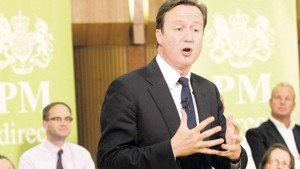 The results of last week’s British general election won by the David Cameron-led Conservative Party confounded the political pundits, public opinion pollsters and experienced politicians in all parties.
The results of last week’s British general election won by the David Cameron-led Conservative Party confounded the political pundits, public opinion pollsters and experienced politicians in all parties.
The Conservatives won 331 seats, the equivalent of 51 per cent of the seats in the House of Commons, the first time in over 20 years that they are having a majority. The big losers were the Labour Party led by Mr Ed Miliband and the Liberal Democrats of Mr Nick Clegg. Both losing party leaders resigned immediately.
Mr Clegg and his senior party leaders paid the price for forsaking their political identity to indulge the narcissism of being a minister of government, something their party on its own could never offer them. They lost nearly 50 seats, including that formerly held by Mr Clegg, ending up with less than 10 seats.
The biggest winners were the Scottish Nationalist Party (SNP), which now has 56 seats, or nearly all the seats in Scotland. This proves the importance of a strong distinctive political identity, something the Liberal Democrats have lost.
The appeal and personality of the leader was critically important. Mr Miliband, after five years as leader of the Opposition, never convinced the British public that he was prime ministerial material.
The polls were clearly indicating that no party would command a majority in the Commons. This concern was a decisive factor in the Labour Party loss. To the independent English voter who wanted an end to coalition government it meant dropping the Liberal Democrats and not voting Labour because a Labour government would need the SNP. This would be another coalition government and one in which the SNP would wield a significant amount of power.
Rather than voting Labour and hoping for a Labour/SNP Government, many of the undecided or independent voters decided to go with the Conservatives. In a sense, it was a kind of nationalist vote by the English in fear of Scottish nationalism.
With 232 seats, the English electorate rejected the Labour Party, which has never been able to shake the political spin of the Conservative Party that portrayed Labour as having caused the domestic economic crisis and beset by incompetent economic managers.
However, Mr Cameron, with such a thin majority, will find it difficult to resolve some serious issues because the right-wing backbenchers will wield more influence. Issues like staying in or leaving the European Union could paralyse the ruling party and Government. The SNP wants to disband the nuclear arsenal and the Conservatives want to retain it.
The surge of Scottish nationalism means that the Scots voted in the referendum to stay in the UK, but with much greater autonomy. Mr Cameron has a mandate only in England and Wales, and substantial devolution must proceed quickly. Otherwise, he has won England but lost the United Kingdom of Great Britain.
The political lessons for Jamaica are that the personality of the leader, a simple clear message, and the impression of managerial competence are critical. The Jamaica Labour Party has problems with all of these factors.
The implications for Jamaica from the British elections are, first, the lack of visibility of the Caribbean in Britain’s foreign policy will continue, and second, in this new complex political milieu, we will need the most experienced and effective diplomatic representation in London.
